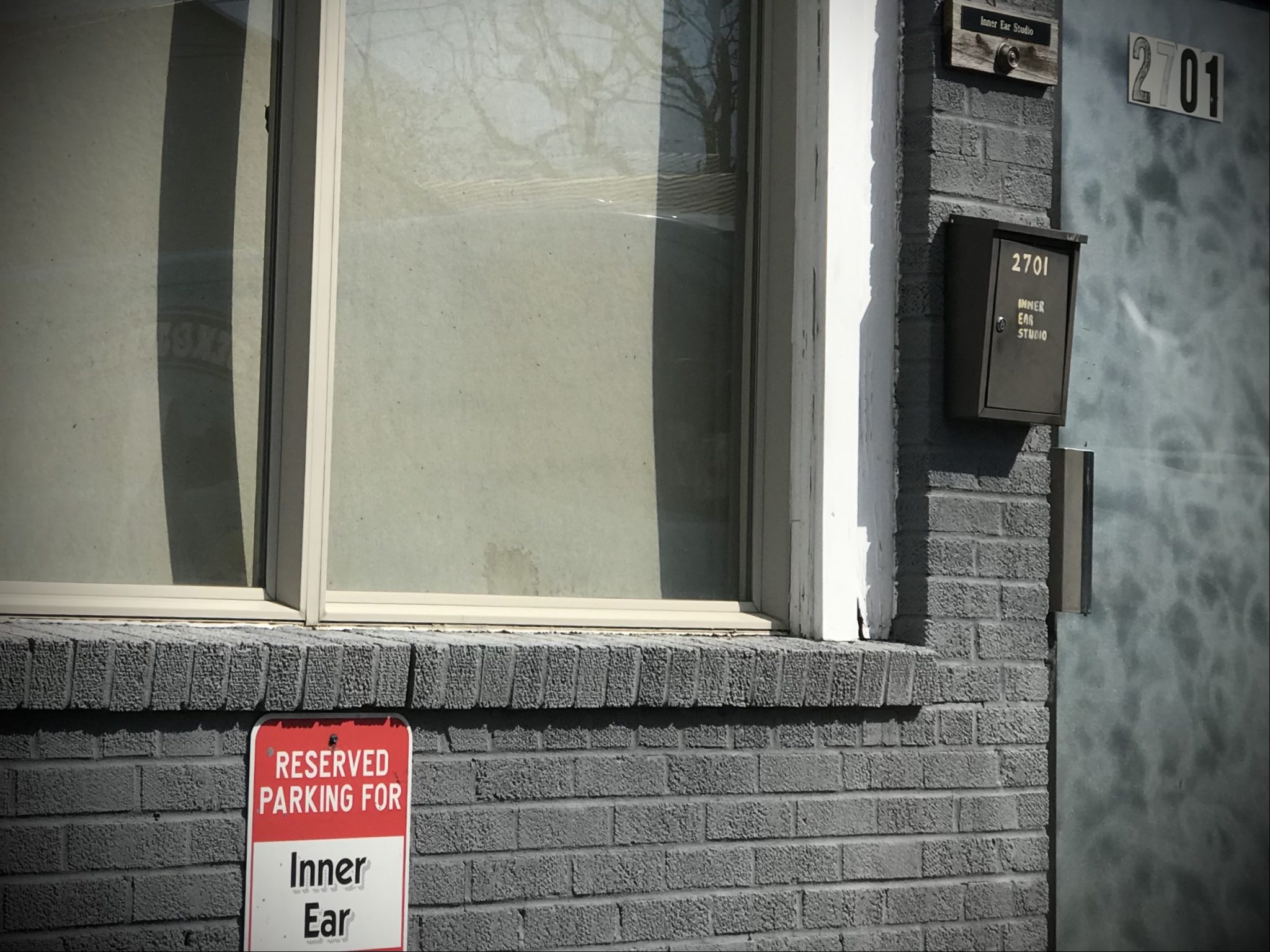Arlington County will consider buying two pieces of land in South Arlington, near Four Mile Run, to aid plans for an arts and industry district. As ARLnow reports, such a sale would likely mean demolishing the building that’s home to Inner Ear Recording Studios.
Inner Ear moved to the site in 1990 from owner Don Zientara’s Arlington house. In both locations, Inner Ear has been where some of the most famous music from the DC area has been recorded, including some of the first Bad Brains recordings, most of Fugazi’s work, and the Dismemberment Plan’s album Change. Dave Grohl took his band the Foo Fighters to Inner Ear to record a song for Sonic Highways, also an HBO series where in one episode he interviewed DC-area artists about recording at Inner Ear.
Reached by phone, Zientara, 72, confirms that it’s possible the studio could close if the county decides to buy the building, where Inner Ear rents its space. “I like what I’m doing, but I could retire, and I think I’m going to have to think long and hard about this and if I want to move all this equipment,” he says. I asked Zientara if he’d ever considered what might happen to the studio should he retire under more voluntary circumstances. “Go ahead and say it!” he says, laughing. “What should I do when I grow up?” He says he might still produce music from his house, noting that he keeps a small setup there and would have his choice of the main studio’s equipment if he closed it: “I’d be a kid in a candy store,” he says.
Zientara says the timeline he has seen would indicate he’d have to close at the end of this year, though he cautions that he’s seen similar plans for years. The cinderblock warehouse building, he notes, has lots of maintenance issues and is not exactly architecturally significant. Before Inner Ear was there, it housed a Hair Cuttery training facility and a delivery company.
Inner Ear has been pretty quiet through the pandemic: “Frankly, if anything is done in the studio, it’s usually older musicians who’ve had their shots,” Zientara says. He’s at peace with the prospect that the studio might close. “It pretty much is a foregone conclusion that the studio will close at some point,” he says. “I am the studio in a lot of ways, but there’s no getting around it—I ain’t gonna live forever!”
Still, there’s a difference between closing a studio because the owner wants to retire and Arlington razing the site where some of the art most associated with the county was made. “Yeah, but that’s the American way,” Zientara says. “History doesn’t mean squat.”



















